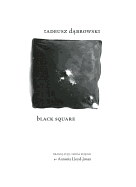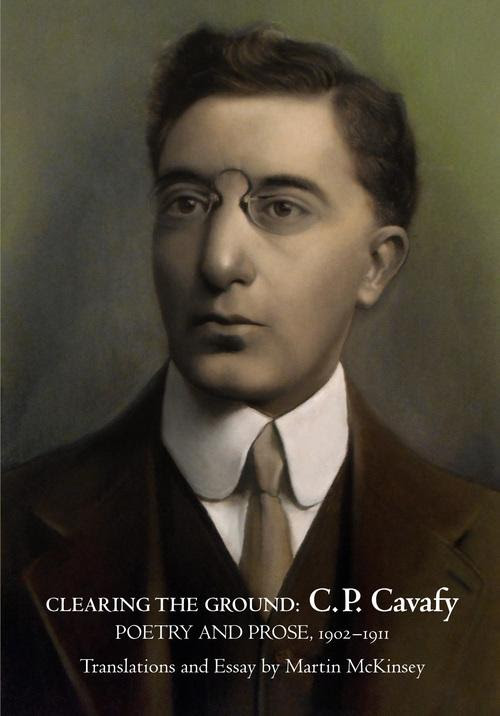In these last days of December, we're all taking stock, totting up the wins and losses of the past year and looking ahead to the year to come. One of our correspondents, Chukwuebuka Ibeh, has more reason than most to look over his books, since his birthday coincides with New Year's. He was kind enough to send us the following essay, a self-inventory of sorts, and to permit us to share it with you here on Ampersand. - ZB
ABOUT THE AUTHOR. Chukwuebuka Ibeh lives in Port Harcourt, Nigeria. He began his university in 2016. His works have appeared in PenEgg, Dwart Online, Jotters United and the website of Short Story Day Africa. He counts among his literary influences the writers Chimamanda Ngozi Adichie, Chinua Achebe, Zadie Smith, Alice Munro, Tami Hoag, O. Henry, Chinelo Okparanta, Helon Habila, and Ali Smith. His story "Kayo" was shortlisted for the Storried Short Story Prize, and published in New England Review of Books. His story "On the Sun-Baked Street" appears in a special feature on new writing from African authors, in Issue 19 of Clarion, published by Pen & Anvil in partnership with the BU BookLab.
I HAVE LEARNT TO LEARN
a birthday piece.
It is my birthday this weekend, on January 1st, first day of the new year. It beats me how I have come this far. The sated child of yesterday who watched the world with lack-lustre tentativeness simmered ever so slightly with resignation, not knowing and not really willing to know, benign and unforgivably naïve without the restless curiousity that came with being nascent—now a calmly collected teenager, who views the world askance, with mild exasperation, easily bored with the world's ambiguous melodrama, a stern aversion to superstition and inane culture. My mother would easily say, "You have changed, Ebuka," with the a small sigh of resignation that said she wished I had not, and although I do not dispute this, I know I have not changed, in whatever context that was. I have simply grown, simply evolved. I have learnt to learn—to look from others, listen to others, read books, and learn. Because I know ignorance is not a virtue, especially one to be flaunted, and although I do not claim to know what I do not, I still do not want to be the one who knows 'nothing', and so who easily agrees with whatever is being said. I want to be the rare one who says No in a room full of people who say Yes, and feel comfortable in my own skin, knowing that the answer really was No. And so I have learnt to be slow to reaction and quick to grasp explanation. I have learnt to be obsessed with nuance and difference, those little things that makes us unique as individuals. I have learnt to value people's opinion, to place humanity and empathy before my own selfish reality. I have learnt not to judge people with societal expectations—in terms of gender, morality, etc.—I have learnt to replace the words "This is how it should be" with "is this how it should be?" Questions give room for learning and learning give room for better understanding. I have learnt to recognise people the way they are rather than the way they 'should' be. I am not perfect. I have learnt not to try too hard to be perfect, have learnt that 'perfect' is adjacent to exhaustion, more like chasing the wind. That is asks too much energy for a sterile result. But I have learnt to be better, to improve, to try. I have learnt to do the few good things I can to the few good people who deserve them and I have also learnt, more importantly, never to expect gratitude for the necessary services I render, even though I deserve to be. I have learnt to be self-contented, to appreciate myself more often; to praise little efforts and criticize little faults, to tell myself 'well done' when necessary, and 'not good' when I fail. I have learnt to believe in myself, to excuse myself for failure and put in more effort next time. I have learnt to judge myself strictly, point out misgivings and unforgivable faults, but I have learnt to be forgiving, anyway to crumple myself on my bed sometimes and remind myself I am human and humans are easily flawed. I have learnt to be there for myself, to say, 'its okay, I'm here', to smile in my own way and say 'things happen' as a way of forgiving myself. I have learnt to love without losing myself, remember to breathe first, own myself a little more before giving room to a lover to own me. I have also learnt not to hold out forgiveness as some sort of armor, or as a blackmail. I have learnt to let go of bad blood, to forgive offenders whether solicited or not, and I have learnt to put the past in the past and move on, but I have also learnt not to be stupid, not to give too much space to assholes to jeopardise my happiness repeatedly. I have learnt both to fix things—relationships, friendships—whenever possible, and to walk away when necessary, since I do not owe anyone any particular lifetime commitment at the expense of my own satisfaction. But I have learnt not to be selfish, not to think of myself too often relegating the others to the background. I have learnt to weigh my strength and weakness adequately before giving room to well-meaning people to come in.I have learnt to create within myself a refuge, a place devoid of nuance, suffused with comfort and familiarity. A place I can gently crawl back to when I feel deserted, with the very last shred of my dignity; a small place where I don't have to try to be someone else.And I know I am loved. In the darkest places, the hollow sensation of whistling in the dark and never getting response, the mild paranoia somewhere beneath the blithe air above that had gathered significance as time went on and slowly became a solid part of me, this fleeting sensation of waking up one morning to discover I was suddenly alone, deserted, disowned, this unflattering self-esteem that had somehow molded into my being, like a cancerous scar, always reminding me that the amazing friend who would not stop texting could suddenly become the exasperating pest whom I could no longer stand, or worst still, the sudden distant stranger who could not think of me without a small feeling of resentment. But then I know I am loved. Its there, in the eyes of my little sister when she laughed at something I was saying even though she did not fully understand, when my brother ask 'are you alright?', with that misty gentleness in his eyes that suggested help, when a few loved friends call at odd hours just to 'hear my voice' and 'know what's up.' I may not be the most privileged one—the popular one, the charismatic one, the funny guy. I may not be the drop-dead gorgeous boy, the classy one, the most-brilliant one. I may not be the best human to be with in the world, and I do not aspire to be these things. I live my life for me first of all, and for the very few people who matter to me, whose existence, in one way or the other had somehow affected my development—positively, of course. And even when I get depressed, when I develop nagging self-doubt about my attitude, my looks, my writing, my perception and perspective towards life in general, I tell myself over and over again until I finally believe: I am loved.ABOUT THE AUTHOR. Chukwuebuka Ibeh lives in Port Harcourt, Nigeria. He began his university in 2016. His works have appeared in PenEgg, Dwart Online, Jotters United and the website of Short Story Day Africa. He counts among his literary influences the writers Chimamanda Ngozi Adichie, Chinua Achebe, Zadie Smith, Alice Munro, Tami Hoag, O. Henry, Chinelo Okparanta, Helon Habila, and Ali Smith. His story "Kayo" was shortlisted for the Storried Short Story Prize, and published in New England Review of Books. His story "On the Sun-Baked Street" appears in a special feature on new writing from African authors, in Issue 19 of Clarion, published by Pen & Anvil in partnership with the BU BookLab.













